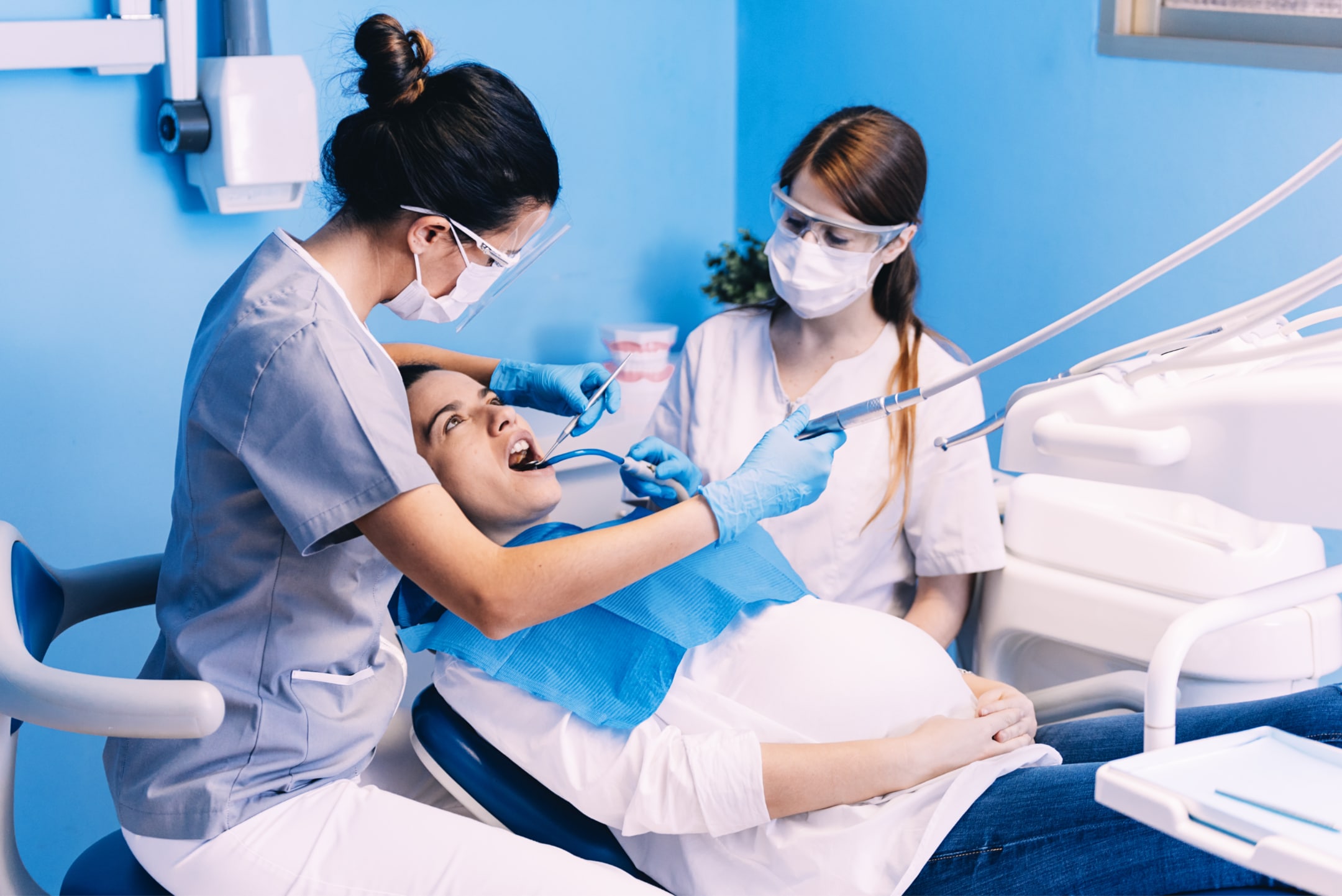Posts by Modern Cosmetics and Dentistry
Found 2 posts

Common Problems Associated with Bad Breath That Often Get Overlooked
Published on 03/26/2025
Bad breath, medically known as halitosis, is a common issue that affects millions of people. While often attributed to poor oral hygiene or specific food choices, the underlying causes and associated problems can be more complex. Let's explore some overlooked aspects of terrible breath that deserve attention.
1. Connection Between Bad Breath and Gum Disease
Bad breath is frequently linked to gum disease, such as gingivitis and periodontitis. These conditions result from bacterial buildup in the tiny pockets between teeth and gums, leading to inflammation and odor. If left untreated, gum disease will form, leading to tooth loss and overall health issues like cardiovascular problems.
2. Medical Conditions That Contribute to Bad Breath
Beyond oral hygiene, bad breath can signal underlying medical conditions. For example:
- Diabetic Ketoacidosis: Causes a fruity-breath odor.
- Kidney Disease: Chronic kidney failure may lead to an ammonia-like smell.
- Gastroesophageal Reflux Disease (GERD): Acid reflux can release stomach contents into the esophagus, causing unpleasant odors.
These connections highlight the importance of consulting healthcare providers when foul breath persists despite good oral care.
3. Dry Mouth as a Hidden Culprit
Dry mouth, or xerostomia, is another overlooked factor in smelly breath. Saliva plays a vital part in washing away food particles and bacteria. Reduced saliva production—due to medications, dehydration, or salivary gland issues—creates an environment where odor-causing bacteria thrive.
4. Impact of Lifestyle Choices on Bad Breath
Lifestyle habits like overindulging in alcohol and smoking will significantly contribute to bad breath. Understanding this can help empower you to make positive changes. It's important to note that tobacco products stain teeth, irritate gum tissues, and promote bacterial growth. Similarly, alcohol dries out the mouth, reducing saliva flow and worsening mouth odors.
5. Psychological Effects of Persistent Bad Breath
Chronic smelling breath can affect mental health by causing embarrassment and social anxiety. It's important to understand that you're not alone in this struggle. Halitophobia—a fear of having imperfect breath—can lead individuals to overuse products like mints or mouthwashes that mask the problem but fail to address its root cause.
Tips for Managing Bad Breath
Allow yourself to tackle your terrible breath effectively by taking these proactive steps to manage your oral hygiene:
- Remove food debris and plaque by using floss and a toothbrush twice daily.
- After brushing, scrape your tongue's surface clean of any bacteria.
- Stay hydrated to maintain saliva production.
- Avoid tobacco products and limit alcohol consumption.
Regular dental checkups are crucial for professional cleanings and early detection of gum disease. This proactive approach can provide reassurance about your oral health and prevent potential issues from advancing. If your unpleasant breath persists despite these measures, consult your dentist to rule out systemic conditions.
Never Overlook Bad Breath, Schedule a Dental Cleaning Today
Bad breath is more than a minor inconvenience—it's a symptom of deeper health issues or lifestyle habits that require attention. Understanding its causes and taking proactive steps will improve oral health and well-being.
Remember, addressing unpleasant breath starts with identifying its root cause. That knowledge is more valuable than merely masking the odor with temporary solutions. Start by scheduling a dental cleaning today at Modern Dentistry and Cosmetics in Joplin, Missouri.
Whether you live or work in Carthage, Webb City, Carl Junction, Oronogo, or Duquesne, we at Modern Dentistry and Cosmetics are here to help. We work with patients under age 65 and older and accept most dental insurance. We also offer discounts for self-paying patients. Please call us today at (417) 623-8232 to schedule your dental appointment.

Why is Dental Care So Important During Pregnancy
Published on 02/17/2025
Dental care during pregnancy is often overlooked, but it plays a vital role in the health of both the mother and the baby. Many expectant mothers may not realize that their oral health can significantly impact their pregnancy and the well-being of their children. Let's explore why dental care is so important during pregnancy and what steps you can take to maintain optimal oral health.
By understanding these essential dental care steps during pregnancy, you can empower yourself with the knowledge and tools to guarantee a healthy pregnancy and baby, feeling in control and confident.
The Connection Between Oral Health and Pregnancy
Pregnancy can cause numerous changes in a woman's body, including changes that affect oral health. Hormonal fluctuations can increase the risk of specific dental issues, making routine dental care even more critical during this time.
Increased Risk of Gum Disease
Pregnant women become more susceptible to gum disease, with nearly 60 to 75% experiencing gingivitis during pregnancy. In the initial stages of periodontal disease, gums will become red and swollen if left untreated, leading to more severe complications.
Potential Pregnancy Complications
Inadequate oral health during pregnancy can be linked to several adverse outcomes:
- Premature birth
- Low birth weight babies
- Pre-eclampsia
- Gingival tissue ulcerations
- Pregnancy granuloma
Such complications emphasize the importance of obtaining adequate oral hygiene and seeking routine dental care during pregnancy.
Safe Dental Practices During Pregnancy
Contrary to common misconceptions, most dental procedures are safe during pregnancy. The American Dental Association and the American College of Obstetricians and Gynecologists emphasize the importance of dental care during this crucial time, providing reassurance and peace of mind.
Routine Check-ups and Cleanings
Routine dental cleanings and check-ups are safe and highly recommended during pregnancy. These visits allow dentists to detect and address potential issues early on, ensuring you feel secure and well-cared for throughout your pregnancy.
Timing of Dental Procedures
While most dental procedures are safe, the second trimester is generally considered the most appropriate time for non-emergency treatments. Elective procedures, on the other hand, are often postponed until after delivery.
Preventive Measures for Optimal Oral Health
Maintaining good oral hygiene is critical during pregnancy. Here are some preventive measures expectant mothers can take:
- Brush thoroughly twice daily with fluoride toothpaste
- Floss daily to remove plaque between teeth
- Use an antimicrobial mouthwash
- Maintain a good balanced diet rich in vitamin D and calcium
- Rinse with baking soda solution after morning sickness to neutralize acid
These simple steps will significantly reduce your risk of dental problems during pregnancy.
The Role of Dental Care in Early Childhood Health
Good oral health during pregnancy benefits the mother and sets the foundation for the child's future oral health. Mothers with poor oral health are more prone to transmit cavity-causing bacteria to their infants. By continuing good oral hygiene, expectant mothers can reduce this risk and give their children a better head start on a lifetime of healthy smiles.
Overcoming Barriers to Dental Care
Despite the criticalness of dental care during pregnancy, many expectant mothers face barriers to accessing these services. Financial constraints, lack of awareness, and misconceptions about how safe dental procedures are during pregnancy are common obstacles.
We understand these concerns at Modern Dentistry and Cosmetics in Joplin, Missouri, and are committed to providing safe, compassionate care for expectant mothers. Our team is trained to address pregnant women's unique oral health needs and can work with you to develop a personalized care plan that ensures both you and your baby stay healthy.
In conclusion, dental care is a crucial component of prenatal care. By prioritizing oral health during pregnancy, expectant mothers can reduce their risk of complications, set a positive example for their children, and contribute to the overall health of their families. Don't let misconceptions or fears prevent you from seeking the dental care you need during this important time. Your smile—and your baby's future smile—are worth it.